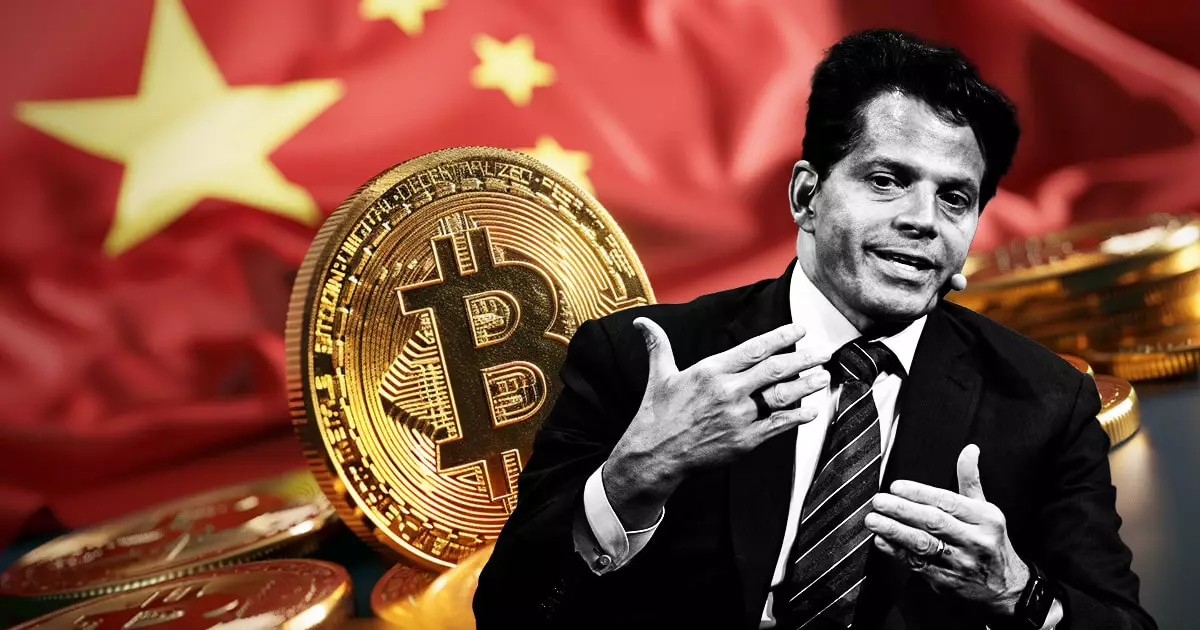As the world increasingly embraces digital currencies, Bitcoin stands out as a frontrunner attracting global interest and investment. Recently, Anthony Scaramucci, a prominent figure in the finance sector, posited that China is poised to re-enter the Bitcoin mining space and might integrate Bitcoin into its national reserves. His comments during the Bitcoin MENA 2024 conference underscore a critical junction in which geopolitics, economic strategy, and digital finance intersect. With significant indicators pointing towards a growing acceptance of Bitcoin among nation-states, it is imperative to analyze the ramifications of these developments.
Scaramucci’s assertions come at a time when the United States appears to adopt a more favorable stance towards Bitcoin. This change suggests a broader acceptance of cryptocurrency as a legitimate asset class. As the landscape evolves, it becomes increasingly challenging for nations to ignore the potential benefits of Bitcoin. The integration of Bitcoin into national reserves is not merely about diversification; it reflects a strategic maneuver to adapt to contemporary geopolitical challenges.
Notably, countries like Russia and Brazil have already begun contemplating similar strategies. Russian lawmakers have proposed the establishment of a national Bitcoin reserve as a countermeasure to economic sanctions, reflecting the urgency many nations feel in bolstering their economic resilience. Brazil, too, is moving in the same direction, with proposals to allocate a substantial portion of its reserves to Bitcoin, indicating a growing trend towards leveraging digital assets for economic stability.
The United States’ position in this emergent landscape is particularly noteworthy. Discussions around the formalization of Bitcoin reserves have gained traction, revealing a potential departure from viewing Bitcoin solely as a speculative asset. President Donald Trump has publicly expressed intentions to uphold federal Bitcoin policies, highlighting the estimated value of the nation’s existing holdings. Similarly, Senator Cynthia Lummis has introduced legislative measures aimed at acquiring significant Bitcoin reserves over time, further establishing a strategic framework rather than a fleeting interest.
Moreover, states like Pennsylvania have proposed similar measures, considering Bitcoin as part of their reserve strategy. This increase in institutional and governmental participation reflects a paradigm shift where officials are backing the idea of Bitcoin as a reserve asset. Notable financial institutions, including BlackRock, have shown interest, suggesting that this initiative could gain additional momentum in the financial markets.
The push for strategic Bitcoin reserves enhances a financial stability framework that aligns with familiar economic principles, particularly concerning inflation hedging and sanctions circumvention. Supporters believe that allocating Bitcoin within national reserve systems may provide countries with a safeguard against economic uncertainties. Such integration also signifies an attempt by governments to assert greater financial independence in an increasingly interconnected and often tumultuous global economy.
However, the proposal is not without its critics. Skeptics argue that the volatility associated with Bitcoin could lead to potential risks, including economic imbalances and wealth redistribution from average citizens to Bitcoin investors. The debate surrounding Bitcoin’s place within national reserves emphasizes the need for thorough discussions and policy frameworks that address both the benefits and potential pitfalls associated with such decisions.
As the world turns its gaze towards the potential reintegration of Bitcoin by major economies, the notion that China might soon add Bitcoin to its reserves is particularly compelling. This anticipated shift may trigger far-reaching implications for global financial systems and geopolitical balances. The convergence of U.S. openness towards Bitcoin and the interest shown by other nations in reinforcing their financial architectures with Bitcoin signifies a turning point in how digital assets are perceived on the world stage.
Conclusively, as governments worldwide reevaluate their approaches toward including Bitcoin within their economic frameworks, the narrative is likely to evolve, leading to broader acceptance and integration of cryptocurrency. Bitcoin’s growing recognition as a strategic digital asset reflects a significant transformation in national finance, heralding a new era where digital currencies play a central role in shaping global economic policies and relationships.
















Leave a Reply